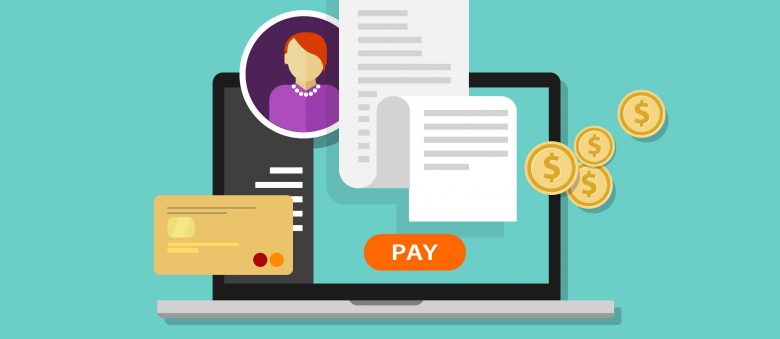Tapping into your home’s equity has become a popular financial strategy for homeowners, with lenders like US Bank offering attractive home equity loan options. While the idea of accessing funds at potentially lower interest rates is appealing, it’s crucial to remember that a US Bank home equity loan is a secured loan, meaning your home is used as collateral. This can have significant consequences if you’re unable to repay the loan, potentially leading to foreclosure.
Toc
- 1. Understanding US Bank Home Equity Loans
- 2. Competitive Interest Rates and Loan Terms
- 3. Generous Equity Access and Borrowing Limits
- 4. Related articles 01:
- 5. Eligibility Requirements for US Bank Home Equity Loans
- 6. Using US Bank Home Equity Loans for Your Financial Goals
- 7. Related articles 02:
- 8. Frequently Asked Questions
- 9. Conclusion
Understanding US Bank Home Equity Loans

A US Bank home equity loan allows homeowners to borrow against the value of their property, utilizing the equity they have built up as collateral. This type of loan can be particularly advantageous for homeowners with good credit, as it typically offers lower interest rates compared to unsecured loans or credit cards.
How US Bank’s Home Equity Loans Work
Home equity loans function by providing homeowners with a lump sum based on their home’s equity. The amount you can borrow is determined by the difference between your home’s market value and your current mortgage balance. For example, if your home is valued at $300,000 and you owe $150,000 on your mortgage, you could potentially access $150,000 through a home equity loan, depending on US Bank’s lending criteria.
Advantages of US Bank Home Equity Loans
For homeowners with good credit, US Bank home equity loans offer several benefits:
- Lower Interest Rates: Home equity loans generally have lower APRs than personal loans or credit cards, making them a cost-effective borrowing option. For instance, in September 2024, the average APR for a 30-year fixed-rate mortgage was around 7.2%, while the average APR for a personal loan was about 10.3%. Home equity loans, with their lower rates, can offer significant savings over the life of the loan.
- Fixed Payments: Many US Bank home equity loans come with fixed interest rates, allowing you to budget more effectively over the life of the loan.
- Tax Benefits: Interest paid on home equity loans used for home improvements may be tax-deductible, providing additional financial relief. However, the deductibility of home equity loan interest was limited by the Tax Cuts and Jobs Act of 2017. This law restricts the deductibility of interest to home equity loans taken out after December 15, 2017, for home improvements or debt consolidation, and only if the loan proceeds are used to acquire, construct, or substantially improve the taxpayer’s home. It’s essential to consult with a tax advisor to determine if your specific situation qualifies for this deduction.
- Flexibility in Usage: Home equity loans can be used for various purposes, such as renovations, debt consolidation, or even educational expenses, making them a versatile financial tool.
Potential Drawbacks
While there are many advantages, it’s essential to consider potential drawbacks:
- Risk of Foreclosure: Since your home serves as collateral, failing to repay the loan could result in foreclosure. This means that if you default on your home equity loan, the lender can seize your home and sell it to recover the outstanding debt. This can have devastating consequences, including losing your home and damaging your credit score.
- Closing Costs: Home equity loans may come with closing costs and fees, which can add to the overall expense.
- Debt-to-Income Ratio: A significant increase in debt could impact your overall financial health and credit score.
- Market Fluctuations: If the housing market declines, the value of your home may decrease, potentially leading to owing more than your home is worth.
Competitive Interest Rates and Loan Terms

One of the primary considerations when evaluating a US Bank home equity loan is the interest rate. As of September 2024, US Bank offers competitive APRs starting as low as 8.40% for borrowers with excellent credit scores of 730 or higher.
Interest Rate Factors
The interest rate you qualify for depends on several factors, including:
- Credit Score: Higher credit scores typically yield lower interest rates. A score of 730 or above is often seen as excellent, providing access to the most favorable terms.
- Loan Amount: The amount you wish to borrow can also impact the rate. Larger loans may have different rates compared to smaller ones.
- Equity Amount: The more equity you have in your home, the better terms you may receive. Lenders view equity as a cushion against potential losses.
Loan Terms Offered by US Bank
US Bank provides various loan terms, including 10-year, 15-year, and 20-year options. Each term has its pros and cons:
- Shorter Terms: Generally result in higher monthly payments but lower total interest costs over the life of the loan. This can be beneficial if you want to pay off your debt sooner.
- Longer Terms: Offer lower monthly payments, but the total interest paid will be higher. This option may appeal to those seeking to maintain cash flow for other expenses.
Understanding how the loan term affects your payments and overall interest cost is crucial for making an informed decision. It’s important to evaluate your financial situation and future plans when choosing the loan term that best fits your needs.
Generous Equity Access and Borrowing Limits

US Bank is known for its generous borrowing limits, allowing homeowners to tap into a significant portion of their home equity. Homeowners can borrow up to 60% of their home’s value, subject to credit and eligibility requirements.
Maximum Borrowing Limits
To illustrate, if your home is valued at $400,000 and you have $240,000 in equity, you could potentially qualify for a home equity loan of up to $240,000, assuming you meet all other criteria. This can be particularly beneficial for those looking to undertake significant projects or consolidate debt.
1. https://docluat.vn/archive/3864/
2. https://docluat.vn/archive/3862/
3. https://docluat.vn/archive/3858/
Benefits of Generous Equity Access
This high borrowing limit can be especially beneficial for homeowners looking to finance substantial projects, such as major renovations or debt consolidation. Accessing a larger sum can help you achieve your financial goals more efficiently. For instance, if you wish to remodel your kitchen, create a home office, or add an extension, a US Bank home equity loan can provide the necessary funds to bring those plans to fruition.
Limitations and Restrictions
While the potential to borrow a significant amount is appealing, US Bank does impose certain restrictions. For instance, they require a minimum of 40% equity in your home, and the exact borrowing limit may vary based on individual financial circumstances. It’s also important to note that the bank may conduct a thorough assessment of your financial history, including employment stability and income verification, to ensure you can manage the repayment of the loan.
Eligibility Requirements for US Bank Home Equity Loans

To qualify for a US Bank home equity loan, there are several key eligibility requirements to consider:
Credit Score
US Bank typically requires a minimum credit score of 660 to apply for a home equity loan. However, borrowers with higher credit scores, particularly those above 730, can expect more favorable interest rates and terms. Improving your credit score before applying can help you secure a better deal.
Debt-to-Income Ratio
Your debt-to-income (DTI) ratio plays a critical role in the approval process. US Bank generally looks for a DTI of 45% or less, meaning your total monthly debt payments should not exceed 45% of your gross monthly income. Maintaining a healthy DTI ratio is essential for loan approval and can also affect the interest rates you are offered.
Home Equity
To be eligible for a US Bank home equity loan, you’ll need to have at least 40% equity in your home. The specific equity requirement may vary based on your financial situation and the bank’s assessment. Understanding your home’s current market value and how much equity you have is crucial when considering this type of loan.
Additional Factors
US Bank may also consider your employment history, income stability, and the overall value of your home when evaluating your application. Ensuring you meet these criteria can enhance your chances of approval. If you have a stable job history and a reliable income stream, it can work in your favor during the application process.
Using US Bank Home Equity Loans for Your Financial Goals

A US Bank home equity loan can serve multiple financial purposes, making it a versatile tool for homeowners. Here are some common uses:
Home Improvements
If you’re considering a major home renovation, a US Bank home equity loan can provide the necessary funds. Not only can you finance your project at a lower interest rate, but the interest paid may also be tax-deductible if used for home improvements. This can be a smart financial move, as renovations often increase your home’s value, providing a potential return on investment when you decide to sell.
Debt Consolidation
Struggling with high-interest debt? A home equity loan can be an effective way to consolidate multiple debts into a single, lower-interest payment. This approach can simplify your financial management and potentially save you thousands in interest payments over time. For example, if you have multiple credit cards with high APRs, consolidating them into a home equity loan can reduce your monthly payments and help you pay off debt faster.
Unexpected Expenses
Life’s surprises can come with hefty price tags. Whether it’s a medical emergency or urgent home repairs, a US Bank home equity loan can help you cover unexpected expenses without resorting to high-interest credit cards. Accessing your home’s equity allows for quick financial relief at a lower interest rate, providing peace of mind when you need it most.
Education Costs
Another potential use for a home equity loan is financing education expenses. Whether it’s for your children’s college tuition or your own continuing education, tapping into your home’s equity can provide a cost-effective way to pay for educational pursuits. This can be particularly beneficial as it may offer lower rates than private student loans.
Investment Opportunities
For homeowners looking to invest in real estate or other ventures, a home equity loan can provide the necessary capital. Investing in rental properties or starting a business can yield significant returns, and using a home equity loan can be a strategic way to fund these opportunities without depleting your savings.
1. https://docluat.vn/archive/3860/
2. https://docluat.vn/archive/3856/
3. https://docluat.vn/archive/3857/
Frequently Asked Questions

Q: How do I apply for a US Bank home equity loan?
A: You can apply online, by phone, or through a local branch. The application process is straightforward and allows you to submit your information quickly.
Q: What documents do I need to provide?
A: You’ll need to provide proof of income, a recent home appraisal, and information about your current mortgage and other debts. Gathering these documents beforehand can streamline the application process.
Q: What are the typical closing costs associated with a US Bank home equity loan?
A: Closing costs can vary depending on the loan amount and your location. It’s important to discuss these costs with your loan officer to understand the total expense involved.
Q: How long does it take to get approved for a US Bank home equity loan?
A: The approval process typically takes a few weeks. However, factors such as the completeness of your application and the need for additional documentation can affect the timeline.
Q: Are there any prepayment penalties for US Bank home equity loans?
A: US Bank does not typically charge prepayment penalties, allowing you the flexibility to pay off your loan early without incurring extra fees.
Conclusion
US Bank offers competitive home equity loans with generous equity access and flexible repayment terms, making them a viable option for homeowners with good credit. By carefully considering your financial goals and understanding the eligibility requirements, you can determine if a US Bank home equity loan is the right fit for your needs. Whether you’re looking to fund home improvements, consolidate debt, or cover unexpected expenses, a US Bank home equity loan can provide the financial flexibility you need. To learn more about US Bank’s home equity loan offerings, visit their website or contact a loan officer today.




